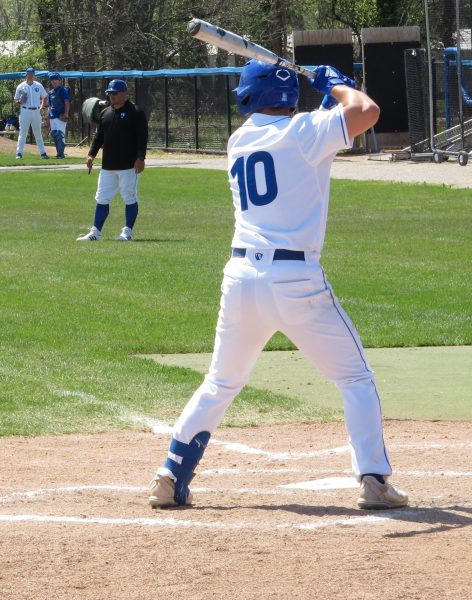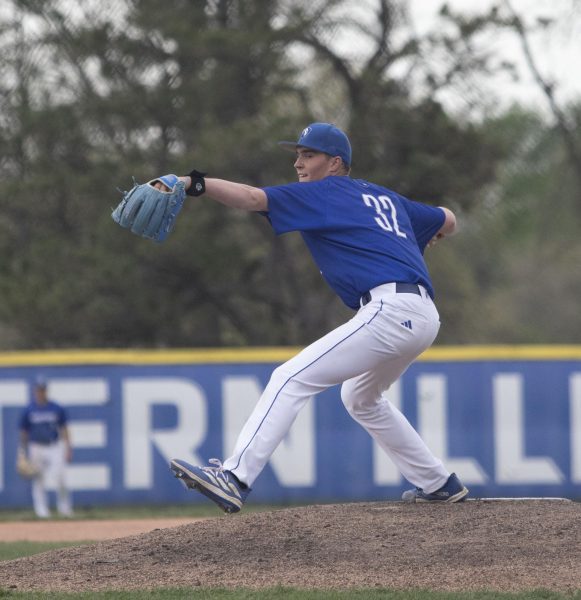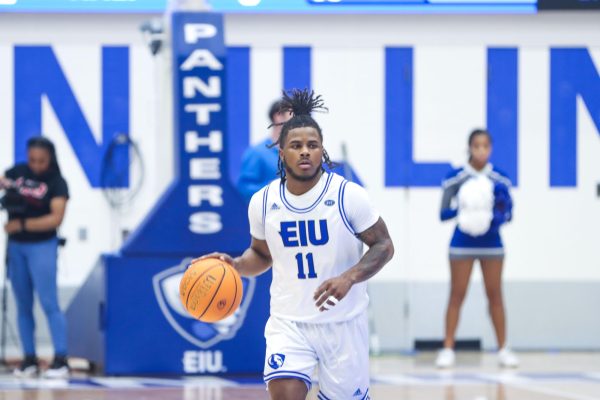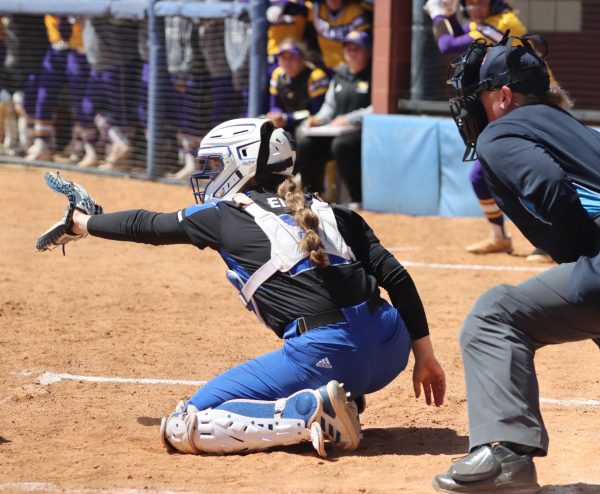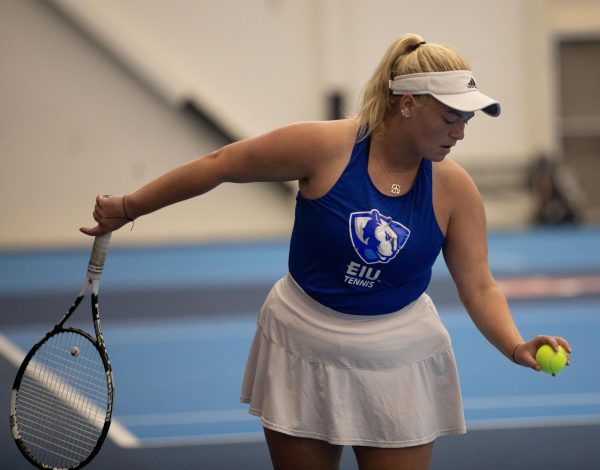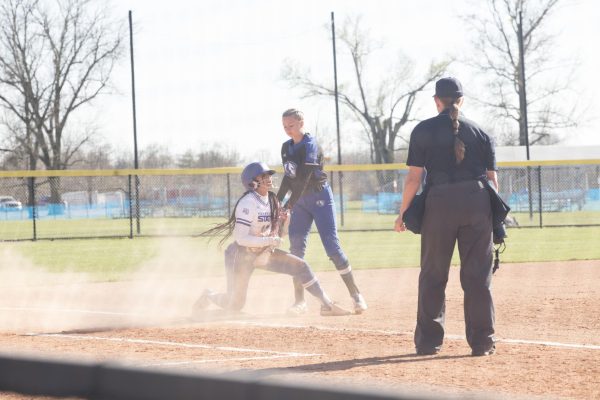Athletes must make grade
A new NCAA regulation is aimed at putting the student back in student athlete.
The new regulations took effect on the first of January this year.
Eastern Compliance Officer Betty Ralston said the NCAA changed the regulations to strengthen the academic aspect of collegiate sports.
“We have always had regulations, but we are increasing them and so is the NCAA,” Ralston said. “We increased ours at Eastern earlier than they did in NCAA; we knew it was coming.”
Ralston said they got approval of this new regulation before putting it in to effect.
“These (regulations) were approved by head coaches, the Student Athlete Advisory Committee, the Intercollegiate Advisory Board and the final say was from the Athletic Administration,” Ralston said.
The new plan states the NCAA expects student athletes to earn 20 percent of their degree in a year based on a five-year plan.
The old regulation only required having 25 percent of their degree done after two years. The new regulation requires 40 percent to be done for the athlete to continue to participate in their sport.
Three years in the sport requires the athlete to earn 50 percent of their degree under the old standards. Now students have to earn 60 percent by the end of the athlete’s third year.
The last change was the smallest change with only a 5 percent difference between the new and the previous standard. Student athletes used to have 75 percent of their degree earned by their fourth year, now it is 80 percent.
“Eastern and the NCAA wants the kids to earn a lot of hours toward their degree and not a lot of hours that go toward a non-degree,” Ralston said.
In order to get hours toward a degree, the NCAA requires student athletes to pass 24 credit hours in a year to stay eligible. Eastern and the NCAA has also raised that number.
Ralston said student athletes must pass 27 hours a year to stay eligible after the first year of schooling.
“If they take the classes that they are supposed to take, they should not have any problem meeting those new requirements,” Ralston said.
This is Eastern’s and the NCAA’s first year of enforcing these new regulations.
Ralston said Eastern did not lose any student athletes because they received plenty of advance notice about the change.
Another new regulation being enforced requires student athletes to pass a minimum of six credit hours a semester to play Ralston said.
“We did lose 10 student athletes after first semester. Some of them had already been on probation so we did not lose 10 kids that were eligible. They were students all trying to get reeligible,” Ralston said.
Ralston said she has been giving coaches and players written warnings if the students athletes’ grades start to drop.
“They just need to do their work,” Ralston said.
Some athletes believe the old regulations were fine despite the consultation by Eastern with the Student Athletic Advisory Committee.
Marcus Jackson, a junior on Eastern’s baseball team, believes the regulations are a bad idea.
“We already have some pretty big demands and as long as we are going to class and maintaining a good GPA, I think it was fine,” Jackson said.
Bridget Owen, a sophomore on Eastern’s softball team, thinks it would put more pressure on the athletes.
“I just think you would have to be an over-achiever to maintain what they want.” Owen said. “I just think it is seems like you have to exceed the 15 credit hours, rather than just keep the limit to meet this criteria.”
Beth Rhodes, a senior on Eastern’s swim team, worries about student athletes who don’t decide their major right away.
“I think it’s bad because what if they just decided their major and have been here for two years but they have been playing the whole time and they automatically have to stop playing because they haven’t been working on their degree,” Rhodes said.
Rhodes also said it isn’t fair to students who started their college education before the rule change.
Some athletes are still not exactly sure how they feel about the new change.
C.J. Weber, a junior on Eastern’s tennis team, said he understands why the rule change is needed, but he still has mixed feelings.
“I understand why they are trying to get people through school. They do not want the people to just play the sport, they actually want them to get an education,” Weber said.
“Also, to a certain extent, Eastern doesn’t have requirements like that for regular students, and I don’t know why they should do that to student athletes.”
Weber understands both sides of the argument, but thinks at smaller universities it should not be as big of a deal.
Erin Lowe, a sophomore on Eastern’s swim team, said there are both negatives and positives to the new regulations.
“In a way it’s good because it makes people be more on top of things,” Lowe said. “But it also may screw peoples schedules up because they have been doing the things the way they were supposed to be be doing them, but they still get messed up because of the new regulations.”
Jonathan Meier, a sophomore on Eastern’s swim team, thinks it could be a good cause, but also thinks it could hurt some athletes in the long run.
“Eastern is making sure athletes get their degree and not just taking blow off classes to participate in athletics,” Meier said. “On the other hand people may be working towards their degree, but they may be working a little slower so it would hurt them even though they are getting their degree still.”





































